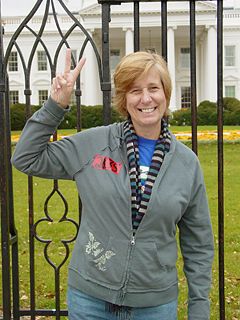A Quote by Cindy Sheehan
What is the 'noble cause' for which you sent our country to war?
Quote Topics
Related Quotes
As the leader of a country, you are not free to enjoy the luxury of such feelings. The Afghan people want peace, which requires persistence. We are determined to defend our country, and the whole region and the entire world understands the justice of our cause and the principled way in which we have engaged in it.
For all the civilians saved thanks to the presence of peacekeepers, there have been those who were lost - the United Nations personnel who sacrificed their lives for a noble cause. Even as we mourn our fallen colleagues, we are all uplifted by their unflinching commitment and are inspired to strive even harder for the collective cause so eloquently envisaged in the United Nations Charter: a world free from the scourge of war.
In a state of tranquility, wealth, and luxury, our descendants would forget the arts of war and the noble activity and zeal which made their ancestors invincible. Every art of corruption would be employed to loosen the bond of union which renders our resistance formidable. When the spirit of liberty which now animates our hearts and gives success to our arms is extinct, our numbers will accelerate our ruin and render us easier victims to tyranny.
No profession or occupation is more pleasing than the military; a profession or exercise both noble in execution (for the strongest, most generous and proudest of all virtues is true valor) and noble in its cause. No utility either more just or universal than the protection of the repose or defense of the greatness of one's country. The company and daily conversation of so many noble, young and active men cannot but be well-pleasing to you.
There are no good wars or bad wars. The only thing bad about a war is
to lose it. All wars have been fought for a so-called good Cause on both
sides. But only the victor's Cause becomes history's Noble Cause. It's not a
matter of who is right or who is wrong, it's a matter of who has the best
generals and the better army!
Restoring nature to its natural state is a cause beyond party and beyond factions. It has become a common cause of all the people of this country. It is a cause of particular concern to young Americans, because they more than we will reap the grim consequences of our failure to act on programs which are needed now if we are to prevent disaster later.
I, serial number 30743, Lieutenant General in reserves Yitzhak Rabin, a soldier in the Israeli Defense Forces and in the army of peace, I, who have sent armies into fire and soldiers to their death, say today: We sail onto a war which has no casualties, no wounded, no blood nor suffering. It is the only war which is a pleasure to participate in - the war for peace.
The havoc wrought by war, which one compares with the havoc wrought by nature, is not an unavoidable fate before which man stands helpless. The natural forces that are the cause of war are human passions, which it lies in our power to change. What are culture and civilization if not the taming of blind forces within us as well as in nature?
We are in a war of a peculiar nature. It is not with an ordinary community, which is hostile or friendly as passion or as interest may veer about: not with a state which makes war through wantonness, and abandons it through lassitude. We are at war with a system, which by its essence, is inimical to all other governments, and which makes peace or war, as peace and war may best contribute to their subversion. It is with an armed doctrine that we are at war. It has, by its essence, a faction of opinion, and of interest, and of enthusiasm, in every country.






































